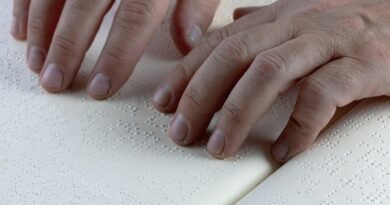What Is the Dunning-Kruger Effect?
By
At one point or another, you’ve probably heard someone speak with confidence on a topic that they actually know almost nothing about. Psychologists have studied this topic, and they’ve suggested a somewhat surprising explanation known as the Dunning-Kruger effect. This happens when people don’t know much about a topic but they’re often actually unaware of the limits of their knowledge and think they know more than they actually do. Below, we’ll review what the Dunning-Kruger effect is, discuss how it affects people’s behavior, and explore ways that people can become more knowledgeable and overcome the Dunning-Kruger effect.
The Dunning-Kruger Effect
The Dunning-Kruger effect refers to the finding that people who are relatively unskilled or unknowledgeable in a particular subject sometimes have the tendency to overestimate their knowledge and abilities. In a set of studies testing this effect, researchers Justin Kruger and David Dunning asked participants to complete tests of their skills in a particular domain (such as humor or logical reasoning). Then, participants were asked to guess how well they had done on the test. They found that participants tended to overestimate their abilities, and this effect was most pronounced among participants with the lowest scores on the test. For example, in one study, participants were given a set of practice LSAT problems to complete. Participants who actually scored in the bottom 25 percent guessed that their score put them in the 62nd percentile of participants.
Why Does It Happen?
The evolution of human intelligence
In an interview with Forbes, David Dunning explains that “the knowledge and intelligence that are required to be good at a task are often the same qualities needed to recognize that one is not good at that task.” In other words, if someone knows very little about a particular topic, they may not even know enough about the topic to realize that their knowledge is limited.
Importantly, someone may be highly skilled in one area, but be susceptible to the Dunning-Kruger effect in another domain. This means that everyone can potentially be affected by the Dunning-Kruger effect. Dunning explains in an article for Pacific Standard that “it may be sorely tempting to think this doesn’t apply to you. But the problem of unrecognized ignorance is one that visits us all.” In other words, the Dunning-Kruger effect is something that can happen to anyone.
What About the Experts?
If people who know very little about a topic think they’re experts, what do experts think of themselves? When Dunning and Kruger conducted their studies, they also looked at people who were quite skilled at the tasks (those scoring in the top 25 percent of participants). They found that these participants tended to have a more accurate view of their performance than participants in the bottom 25 percent, but they actually had a tendency to underestimate how they did relative to other participants. Although they typically guessed their performance was above average, they didn’t realize quite how well they had done. As a TED-Ed video explains, “Experts tend to be aware of just how knowledgeable they are. But they often make a different mistake: They assume that everyone else is knowledgeable, too.”
Overcoming the Dunning-Kruger Effect
What can people do to overcome the Dunning-Kruger effect? A TED-Ed video on the Dunning-Kruger effect offers some advice: “keep learning.” In fact, in one of their famous studies, Dunning and Kruger had some of the participants take a logic test and then complete a short training session on logical reasoning. After the training, the participants were asked to assess how they’d done on the previous test. The researchers found that the training made a difference. Afterward, the participants who scored in the bottom 25 percent lowered their estimate of how well they thought they had done on the preliminary test. In other words, one way to overcome the Dunning-Kruger effect may be to learn more about a topic.
However, when learning more about a topic, it’s important to make sure that we avoid confirmation bias, which is “the tendency to accept evidence that confirms our beliefs and to reject evidence that contradicts them.” As Dunning explains, overcoming the Dunning-Kruger effect can sometimes be a complicated process, especially if it forces us to realize that we were previously misinformed. His advice? He explains that “the trick is to be your own devil’s advocate: to think through how your favored conclusions might be misguided; to ask yourself how you might be wrong, or how things might turn out differently from what you expect.”
The Dunning-Kruger effect suggests that we may not always know as much as we think we do. In some domains, we may not know enough about a topic to realize that we are unskilled. However, by challenging ourselves to learn more and by reading about opposing views, we can work to overcome the Dunning-Kruger effect.
Sources
- Dunning, Dunning. “We Are All Confident Idiots.” Pacific Standard, 14 June 2017.
- Hambrick, David Z. “The Psychology of the Breathtakingly Stupid Mistake.” Scientific American, 23 February 2016.
- Kruger, Justin. “Unskilled and Unaware of It: How Difficulties in Recognizing One’s Own Incompetence Lead to Inflated Self-Assessments.” Journal of Personality and Social Psychology, David Dunning, ResearchGate, January 2000.
- Lopez, German. “Why incompetent people often think they’re actually the best.” Vox, 18 November 2017.
- Murphy, Murphy. “The Dunning-Kruger Effect Shows Why Some People Think They’re Great Even When Their Work Is Terrible.” Forbes, 24 January 2017.
- TED-Ed. “Why incompetent people think they’re amazing — David Dunning.” YouTube, 9 November 2017.




